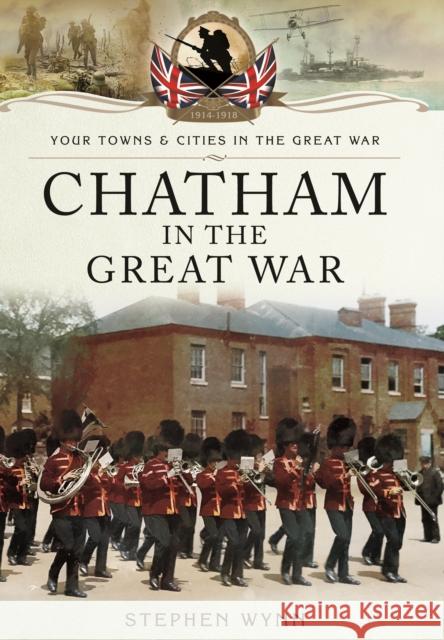Chatham in the Great War » książka
Chatham in the Great War
ISBN-13: 9781473827882 / Angielski / Miękka / 2017 / 152 str.
Chatham played a very important part in the nation's Great War effort. It was one of the British Royal Navy's three 'Manning Ports', with more than a third of the town's ships manned by men allocated to the Chatham Division. The war was only 6 weeks old when Chatham felt the affects of war for the first time. On 22 September 1914, three Royal Naval vessels from the Chatham Division, HMS Aboukir, Cressy and Hogue, were sunk in quick succession by a German submarine, U-9. A total of 1,459 men lost their lives that day, 1,260 of whom were from the Chatham Division. Two months later, on 26 November, the battleship HMS Bulwark exploded and sunk whilst at anchor off of Sheerness on the Kent coast. There was a loss of 736 men, many of whom were from the Chatham area. On 18 August 1914, Private 6737 Walter Henry Smith, who was nineteen and serving with the 6th Battalion, Middlesex Regiment, became the first person to be killed during wartime Chatham. He was on sentry duty with a colleague, who accidentally dropped his loaded rifle, discharging a bullet that struck Private Smith and killed him. It wasn't all doom and gloom, however. Winston Churchill, as the First Lord of the Admiralty, visited Chatham early on in the war, on 30 August 1914. On 18 September 1915, two German prisoners of war, Lieutenant Otto Thelen and Lieutenant Hans Keilback, escaped from Donnington Hall in Leicestershire. At first, it was believed they had escaped the country and were on their way back to Germany, but they were re-captured in Chatham four days later. By the end of the war, Chatham and the men who were stationed there had truly played their part in ensuring a historic Allied victory.











